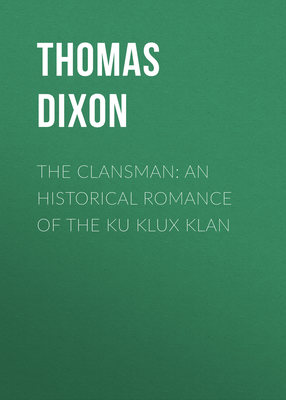Kitabı oku: «Comrades: A Story of Social Adventure in California», sayfa 3
CHAPTER VI
THE RED FLAG
Norman lost no time in springing his scheme for the establishment of the Socialist colony and headquarters for the propaganda of the new social religion on the island of Ventura. The season he had spent as a reporter gave him the key to the proper launching of a press story which created a profound sensation. It appeared simultaneously in the Sunday editions of all the leading dailies of the Pacific coast, and in forty-eight hours his mail had grown to such proportions that he required two secretaries to assist him in answering it.
He called for a thousand volunteers to join the advance-guard of the coming Brotherhood of Man, each contributing a thousand dollars. He announced a mass meeting and picnic for the Fourth of July, to be held on the big lawn of the Worth country house on the outskirts of Berkeley.
Colonel Worth had readily given his consent to the use of the lawn. He had not tried in any way to interfere with his son's association with the Socialists. He felt sure that in time he would tire of the fad, as he had of football, and in a fatherly way he began to admire the dash and audacity of the boy's plans.
On the morning of the picnic, when Elena expressed her fears of the outcome, the Colonel laughed.
"Don't worry, Elena. He'll come to his senses. It's like a fever. It must run its course. I'm rather proud of the extravagance of his foolishness. A boy who can forget his games and give his life to destroy the foundations of human society and try to rebuild a new world on its ruins – well, there's good stuff in him."
"But if he does something rash?" Elena persisted.
"He won't. With all his extravagance and enthusiasm he's not a fool. I, too, saw visions like that once."
"You, Guardie?"
"Yes, when I was very, very young – a mere boy of thirteen – I joined a colony of Communists."
"I wish I could have seen you at thirteen," Elena cried, with a joyous laugh.
The laugh died suddenly and a frown overspread her face as Norman appeared.
"I want you and Elena to hear our orator to-day, Governor," Norman said, with enthusiasm. "We are going to make it a great day."
"It's already great, my boy – I've just got the news."
"What news?"
The Colonel drew a telegram from his pocket.
"A message from Washington. Sampson and Schley have annihilated the Spanish fleet. Admiral Cervera is a prisoner on board the flagship, and the army is rapidly closing in on the doomed city of Santiago."
He handed the telegram to Norman, who glanced at it in silence and returned it to his father.
"Come to our meeting on the lawn at noon, Governor. We've bigger news than that for you."
"Bigger news?" the older man asked with a quizzical look.
"Yes. A message announcing the dawn of a day when every gun on earth shall be broken to pieces and melted into ploughshares."
The Colonel looked at Norman a moment, smiled, and slowly said:
"I love the young – because I live myself over again in them."
"Then you'll join us to-day?"
"Thanks – no – Elena and I are going to shoot firecrackers – but we won't disturb your crowd. Let them speak to their hearts' content."
The Colonel turned with Elena, and entered the house, which crowned an eminence overlooking the distant bay and city, while Norman hurried down the green sloping lawn to finish the decorations of the speakers' stand.
The crowd had already begun to pour in from Oakland and San Francisco, and more than a hundred delegates from Socialist locals in other cities were expected.
On a little headland which jutted out from the long sloping mountain side on which the lawn was laid out, Colonel Worth had erected a tall steel flag-pole. The big flag which flew from its peak could be seen by every ship that entered or left the bay and for miles on shore in almost every direction.
Around this flag-pole Norman had built the speakers' platform, with every inch of its boards covered with the deep-red bunting symbolic of the Socialist cause. Behind the stand toward the mountains rose a smooth grass-carpeted hillside in semi-circular form, making a natural amphitheatre on which five thousand people might sit in tiers one above the other and distinctly hear every word uttered on the platform.
By noon every inch of this space was packed with a dense crowd of Socialists, their friends, and the curious who had come, drawn by the sensational announcement of the launching of the Socialist colony on the island of Ventura.
In the front row, packed close against the platform, were a number of famous people – conspicuous among whom was an author whose impassioned stories of the coming social upheaval had resulted in fame for himself and a divorce-suit by his first wife. His new wife, the "affinity" who caused the disturbance, sat by his side.
On his left sat a solemn looking poet with bushy, unkempt hair. He had deliberately chosen the title "The Bard of Ramcat." The name Ramcat had been long applied to a shabby section of the outskirts of San Francisco. Here the poet had chosen to dwell and sing of social horrors which existed only in his fertile imagination.
He had won wide fame, however, as the supreme exponent of the "affinity" theory which has always been epidemic among thoughtful Socialists. He coolly informed his wife that he had discovered his true "affinity" in a woman he had installed as her guest. The two affinities accompanied the wife and her child to a steamer for Europe with instructions to obtain a divorce.
The poet married the affinity, and on the birth of a new son and heir acquired the habit of beating her as a form of relaxation from the strain of work. Considerable trouble followed, and he spent a portion of his time in jail. He had once gone barefooted and bareheaded. But since his "affinity" marriage he had been compelled for reasons best known to himself to resume shoe-leather and to buy a hat. Nevertheless he was still a striking-looking figure, seated beside his new wife whose strong, intellectual face won the sympathy of all who saw her.
Just behind him sat an ex-clergyman with whom a rich young woman in his congregation had fallen in love. To avoid trouble, the woman of wealth got him to leave the ministry, and bought him from his wife for a good round sum. He became an apostle of the new gospel of Socialism, and secured a position as a professor of economics. When finally he lost this position by his vagaries, his wife hired a hall and set him up in business as an inspired leader of new thought emancipated from the chains of capitalistic tyranny.
Beside the distinguished ex-clergyman Socialistic apostle sat Professor Otto Schmitt, a famous teacher of economics at a Western university. His supreme passion was hatred of women. His one big book was written to prove that woman has no soul, that she is the mere matter on which man by his will acts, that she is not immoral, but merely non-moral, having never possessed even the rudiments of a moral nature. Schmitt had, therefore, maintained that the entrance of women into competition in the economic world presaged the downfall of man and the utter extinction of humanity. For this reason he had joined the Socialists.
Not three feet away from him sat a thoughtful, elderly, short-haired woman who had written a book on the evolution of woman to prove that woman alone is the original unit of creation, man a superfluous and temporary addition, merely the missing link between woman and the monkey, and in the process of human development the male biped would be eliminated. She demanded equal rights with man, and more besides, and she, too, had joined the Socialists.
Yet through all these ludicrous incongruities there ran the single scarlet thread of social discontent which made them one. In every soul rang the stirring cry:
"Down with civilization! Up with the Red Flag!"
A more remarkable group of men and women could scarcely be gathered together on the face of the earth. But the one mark they all bore, distinctly cut deep in the lines of every face on which character had set its seal, and written large in the restless, nervous personality of the young – they all had a grievance, and though their troubles might come from as many different causes as there were men and women present, they united in one thought:
"Modern civilization must be destroyed!"
Every heart beat with this fiery resolution, and every incongruity melted and faded into insignificance before this consuming belief.
And they had gone about this purpose with a deadly earnestness which meant business. Their political campaigns were merely moments when the captain of their ship cast the lead-line to feel the bottom and find his position with certainty before signalling full speed ahead.
They worked all the year round and every day in every year, from one election to the next. They were mastering the tricks of the demagogue in their appeal to the masses, and they kept everlastingly at it. No man is too high, no man too low, for them to reach for him. They couldn't be beaten for they had accepted defeat before they began to fight, and began the next fight before they got up from the ground where they had been knocked down. They had become the one element in American politics to which it was utterly useless to direct any argument of expediency.
The Fourth of July, the Nation's birthday, they were now using to demand its extinction. The fact that our army and navy had just torn the flag of Spain from its last masthead in the Western hemisphere and startled the old world with our sudden advent among the great powers of the earth, stirred in their hearts no emotion save that of contempt. While the souls of millions beat with patriotic pride, they had met to uproot the very ideas from whose soil patriotism sprang into life.
There was no question as to who should be the orator of the day. The fame of Barbara Bozenta had become national from the day of her first speech in San Francisco. Her beauty and eloquence were sufficient to pack any hall at twenty-four hours' notice.
Her delicate face was radiant to-day with unusual elation. She walked with a quick, nervous energy that seemed to lift her whole body into the air. As she ascended the platform and bowed to the tumult of applause, she trembled from head to foot with intensest excitement. As she stood looking over the inspiring scene for a moment, her sensitive nostrils dilated, her brown eyes flashed, and her heart beat with a great throb of personal pride. She had never before faced such an immense throng of excited men and women, and the secret consciousness that she had within her soul the message which would sweep their heartstrings as she willed, lifted her into the clouds.
She felt for the moment that the whole scene was a tribute to her power. The magnificent house whose windows flashed in the sunlight, the vast lawn carpeted with green and set in dazzling flowers, the emerald waters of the bay, and the spires and domes of the distant city set on its proud hills beyond – all were hers to-day! Her voice had called to their standard the young millionaire whose name was now on every lip. Her voice had inspired his dream of the experiment to be made on the island of Ventura which had called this host together. For one big moment she felt the thrill of conscious creative genius, the pain, the joy, the glory of a positive achievement.
Her eyes suddenly filled with tears, and she sank to her seat with a suppressed sob.
When at last she rose to speak, her whole personality was a quivering battery of resistless emotion. Her voice, low and pulsing with magnetic waves of suppressed feeling, caught and chained the attention of the farthest straggler on the edge of the throng. Instinctively they moved closer. Resistlessly she drew them.
She had not spoken two minutes before she was sweeping the hearts of her hearers. Men and women who had come to laugh or scoff, as well as the young and thoughtless who had drifted with the crowd, were all alike caught in the spell and hung breathless on her words.
Every trick and art of persuasive speech were hers without effort. Scorn, pathos, humour, passion, were of the breath she breathed. At times her eloquence reached the highest conception of its might. It was simple thought packed until it took fire. At such moments scores of men leaped to their feet and shouted. Nothing disconcerted her or changed the swift current of her ideas. She was a master-musician whose hands swept a harp of a thousand strings – every string a throbbing human soul.
What matter if her appeal was to the emotions and not to the intellect? Her purpose was to persuade her hearers. And she did it. Her courage, her beauty, her skill, her utter sincerity, commanded the respect of the strongest man who listened. If their intellects were not convinced, no matter – she carried them with her on a storm of resistless emotion.
Suddenly a thing happened which would have destroyed the total impression of the average speech. Old Methodist John, her pauper protégé, had listened with increasing torture, choking down a hundred "Glorys" as they leaped from his soul until at last he could endure no more. At the climax of one of her impassioned appeals the old man leaped to his feet, rushed in front of the speakers' stand and shouted into the face of the chairman:
"Look here! Look here, now, Wolf! Soup or no soup – Glory hallelujah!"
Barbara alone smiled. The crowd took up his shout, and a thousand voices made the heavens ring with its wild music.
Norman whispered to the old man, who sat down, and Barbara swept on in her impetuous triumph without the lapse of a moment's power. She seized the instant's hush which followed the storm of cheering to fire into the minds of her hearers some of the solid shot of the revolutionary programme.
In a voice which swelled to the clarion note of a trumpet she cried:
"The earth for all the people! This is our demand!
"The machinery of all production and distribution for all the people! This is our demand!
"The collective ownership and control of all industry! This is our demand!
"The elimination of rent, interest, and profit! This is our demand!
"A new social order, a higher civilization, a real republic! This is our demand!
"The end of the hell called war, of poverty and shame, of cruelty and crime, the birth of freedom, the dawn of brotherhood, the beginning of man! These are our demands! This is Socialism! Is this an idle dream? Have you no faith in your fellow man?
"In the grim prison beyond the bay I found one day a woman convict who was little removed from a fiend. I got permission to hang a beautiful picture in her cell – a picture that set her soul to dreaming, that melted her at last to tears, and transformed the beast within her to a gentle, loving, beautiful, human character.
"I believe in man because he alone possesses this power to look through the window of the soul into the infinite and eternal. Here the world's real battles are fought. Here the world's real work is done. Here cowards run and the brave die. This power to recreate the earth, people it with beauty, and fill it with harmony is your birthright.
"Lo, the day of humanity dawns!
"I preach class consciousness that we may destroy all classes. Class must perish and Man be glorified. Man, whose inhumanity to his fellow man has filled the ages with ashes and tears, is coming forth at last purified by suffering, and we shall see his tears turned to smiles upon the faces of a nobler race.
"Why should we rejoice to-day in the death of our fellow man? Nations are but the dung-heaps out of which the fair flower of a world-democracy is slowly growing. Truth is not national, it is infinite. France may fight Germany because two titled fools insult each other, but there can be no war between the laboratories of Pasteur and of Koch. Their work is the common heritage of humanity. Who asks if Humboldt was German or English, whether Spinoza was Jew or Gentile, Darwin English or French? A German wrote 'Faust,' a Frenchman set it to immortal music, and an American girl sang it into the hearts of millions. Who cares to know nationalities? The great belong to the democracy of the world. And I swear that your children will still laugh with the soul of Cervantes in spite of the Fourth of July, Santiago, and Manila!
"Why should you fight one another? When called to war by your rulers, let the liberty-loving spirits of the modern world say to their masters:
"'Go and do your own killing – you who have separated us from our brothers and made the earth a slaughter-pen.'
"If you are court-martialed and shot for this act of heroism remember:
"'They never fail who die
In a great cause: the block may soak their gore:
Their heads may sodden in the sun: their limbs
Be strung to city gates and castle walls —
But still their spirit walks abroad. Though years
Elapse and others share as dark a doom,
They but augment the deep and sweeping thoughts
Which overpower all others, and conduct
The world at last to freedom!'"
A shout of wild applause rent the air as the last note of Byron's immortal song fell from her beautiful lips. And then, in a low, intense voice, she closed her speech with a thrilling appeal for human brotherhood. To Norman, who hung on her lips, the slight girlish figure seemed transformed before their eyes into a radiant messenger of the spirit. And when the sweet womanly tones at last broke and choked into deep-drawn sobs, his soul and body seemed no longer his own. As her last words sank into his heart: "From to-day let each of us swear allegiance to but one flag, the deep-red emblem of human blood, God's sign of universal brotherhood!" Norman leaped to his feet, sprang on the platform, and while the crowd swayed in a frenzy of applause, hauled down the Stars and Stripes and quickly raised the big red standard of Socialism which was thrown across the speaker's table.
And then the great crowd seemed to go mad. Wave after wave of cheering rose and fell, rose and fell, in apparently unending power. Catherine threw her arms around Barbara in a paroxysm of emotion, while the big figure of Wolf towered above them both, shouting and gesturing like a madman. Barbara at last lifted her hand and, as the storm subsided, began the Marseillaise hymn.
The first stirring notes had just swept the audience when the stalwart figure of Colonel Worth suddenly appeared on the platform, his face a blaze of anger, his magnificent figure erect, every nerve and muscle drawn to the highest tension.
He stepped to the edge of the stand, lifted his head, and his voice rang over the crowd like the sudden boom of a cannon:
"Silence!"
He didn't repeat the word.
The singing stopped, and every eye was riveted on the group that stood on the platform.
The Colonel confronted Wolf, and shot his words at him as though from a machine-gun.
"Who lowered that flag?"
A moment of silence followed. The Colonel spoke with increasing rapidity.
"Who lowered that flag? The man who did it must answer to me!"
Some one behind him moved, and the Colonel turned, confronting Norman.
"I did it, Governor," was the quiet answer.
"You?" the father gasped.
"Yes," said the even, firm voice.
"Haul that red rag down and raise the flag back to its place!" The Colonel's voice was low and thick with rage.
Elena put her hand on his arm and said gently:
"Guardie!"
"Will you do it?" he firmly asked, ignoring Elena, and holding Norman with his gaze.
The young man hesitated an instant, met his father's look with a deadly straight stare, and slowly replied:
"I will not."
A smothered cry from Barbara, half joy, half pain, was the only sound that followed, until the Colonel said:
"Then I'll do it for you."
Amid a dead silence he hauled down the red flag, threw it on the floor, boldly stamped on it, made fast the Stars and Stripes, and quickly raised it to the top of its staff. He turned to the crowd, and in clear-cut, sharp tones of command shouted:
"This is my flag, my house, my lawn. Get off it! And do it quick!"
As the crowd hastened away, he turned to Norman:
"You and I must come to an understanding at once, young man," he said, with angry emphasis.
"I'll meet you in the library in thirty minutes," was Norman's firm reply as he led Barbara from the platform and joined the retreating throng.






